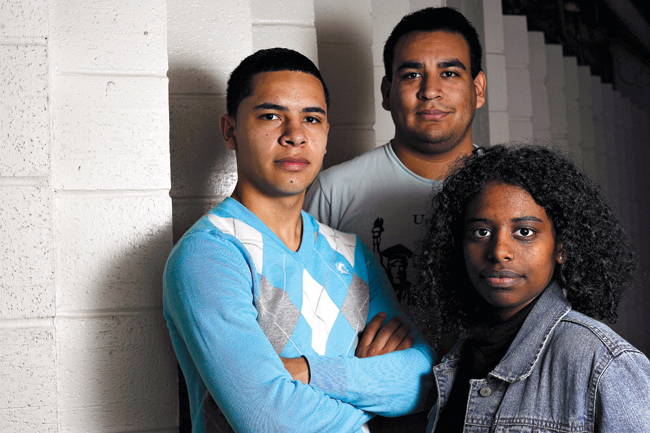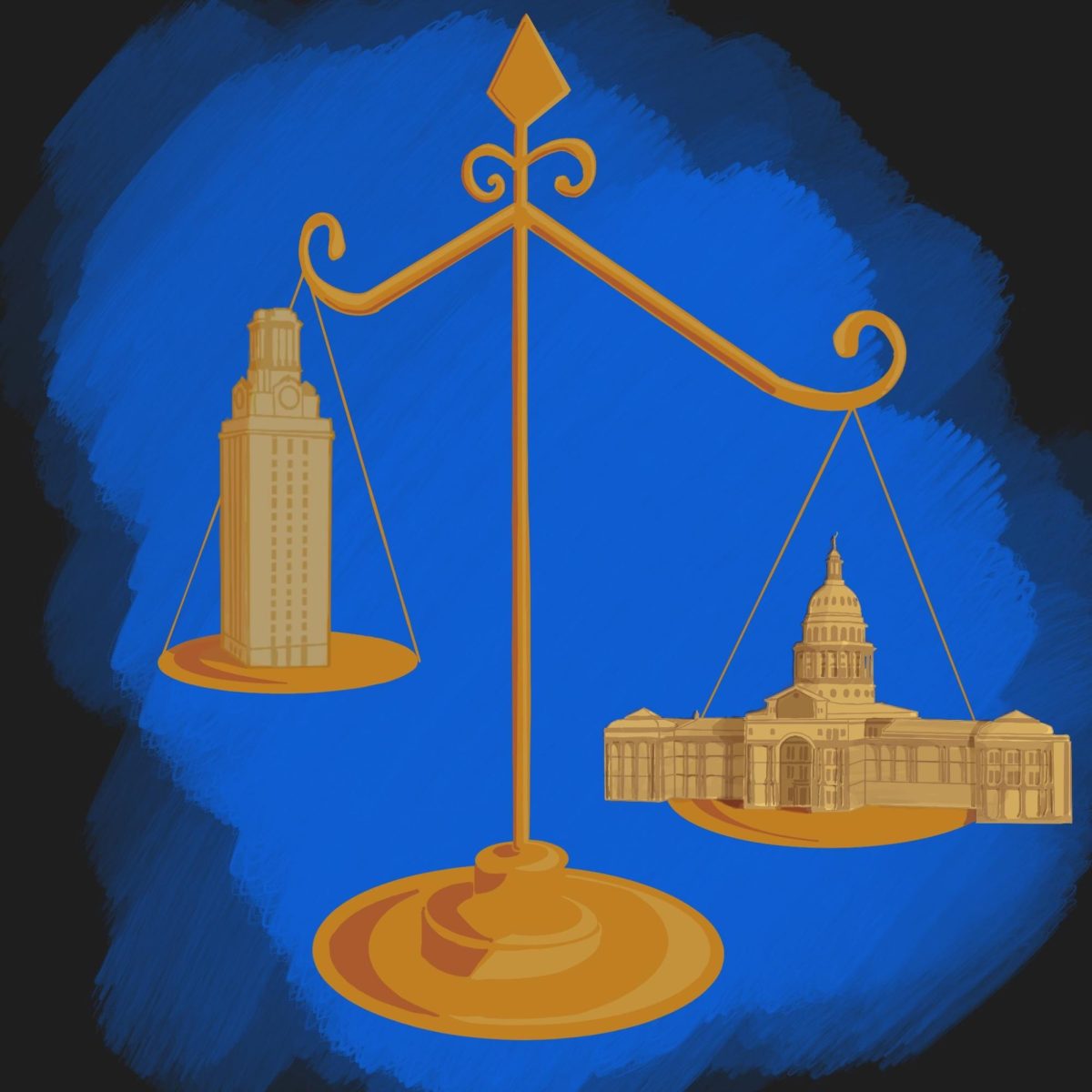Editors Note: This is the third in a three part series about how immigration law impacts higher education and the UT system.
A new rule from the Texas Higher Education Coordinating Board will establish a consistent procedure to make sure undocumented students apply for legal status after graduation beginning fall 2012.
THECB officials said recent national scrutiny from Gov. Rick Perry’s presidential campaign caused board members to address the issue at their board meeting this past December. Under the new rule 19, which is expected to be approved at THECB’s board meeting today, educational intuitions across the state will require undocumented students who meet Texas residency requirements to sign an affidavit promising they will apply for legal residency. It will also advise them on how to obtain legal status by instructing them to contact an appropriate federal agency upon graduation.
Institutions will have also have to remind students to seek legal status upon initial entry to the institution, every subsequent year after and upon graduation, according to the new rule.
Texas had a total 16,476 students signing affidavits in the 2010 fiscal year and UT accounted for 612. Of those students, 12,028 attended community and technical colleges, 4,403 attended public universities and 45 attended public health related intuitions, according to THECB officials.
Deana Williams, assistant director of admissions, said UT determines who meets Texas residency requirements based on whether they have resided in Texas for 36 months prior to high school graduation, graduated from a Texas high school and resided in the state for 12 months prior to enrollment.
“We have yet to put into place the procedures to [comply with the new rule] but it will obviously require additional effort on our part to make these notifications,” Williams said.
Dominic Chavez, director of the Office of External Relations for THECB, said the new statute will not punish any student who cannot comply with the affidavit requirement because most of the students cannot fill the requirement because of federal immigration law.
“We are not putting forth these rules because we anticipate any failure to comply on behalf of these students,” Chavez said. “We’re doing this to create a statewide standard on two issues, document retention and advising. This way the Texas Legislature and the taxpayers will know the process is airtight.”
Chavez said the new rule is very flexible and will allow institutions to determine how they will enforce the rule. For example, he said, it does not have to be the registrar or financial aid officer’s job to sit down and advise students each year to do this.
The statewide debate over who should monitor undocumented students receiving in-state tuition dates back to 2001 when the Legislature passed HB 1403. The bill allowed undocumented students to receive the in-state tuition discount as long as they met the state’s residency requirements mentioned previously.
Barbara Hines, clinical law professor and UT Immigration Clinic co-director, said students under HB 1403 are very aware of the obligation to seek legal status at the earliest time possible. Hines said the new rule instructing students to contact a federal agency was a cause for concern.
“Undocumented students should not contact Immigration and Customs Enforcement without competent legal counsel because they run the risk of being arrested,” Hines said. “As an attorney, I would never advise any person to go on their own to an agency unless I had carefully reviewed their immigration status.”
Hines said the only competent adviser in these situations would be a competent immigration attorney, a costly and sometimes unavailable option in urban areas.
Ainee Athar, an international relations and global studies senior, said the fact that universities could implicate a person who is undocumented is a security and privacy concern. Athar became undocumented when she was 18 due to an error made in her family’s asylum appeal from Pakistan.
“HB 1403 does not give students a deadline for applying for legal status,” Athar said. “The reason for this is simple — the law is meant to promote educational access, not immigration reform and procedure.”
Printed on Thursday, January 26, 2012 as: Rule helps students gain legal status




















